Recently, I was able to talk with a group of teachers (and later a group of parents of preschool children) about an important milestone in children's development: when they first learn to read. What I learned is how many misconceptions there are out there, spurred on perhaps in part by the new hype in the last few years of teaching babies to read.
Thank you to all of you who continue to follow this blog. I have been absent, struggling a bit as all of us do from time to time, with squeezing everything we want to do into the time and energy we have. I know that parents can relate to that.
A MEANINGFUL RE-STARTWith this post, I'd like to draw us back together and begin again the discussions about parents and kids reading together. This post is for parents of 2 year olds and parents of 22 year olds.
Please share this new post with your friends and tap them into an important resource.
GREETINGS FROM TAMPA, FLORIDA!This is a view out my hotel window tonight. I am in lovely (and warm) Tampa, Florida for the
National Title I Conference and am so excited to tell you that family engagement in children's learning is on the FRONT burner!
Not only does my session, Families and Educators: A Joint Book Club Concept, address this topic but there are at least five other presenters talking about this same issue. With educators talking more about how to involve families (some how to "follow the letter of the federal law in Title I schools but others, happily, who are genuinely interested in partnering with parents).
I'd love to hear the viewpoint from anyone reading this post on the following questions:
Do you feel welcome at your child's school? Why or why not?
Do you see your child's teacher as "friend" or "foe"? Why or why not?
- If you could stand in front of the Title I teachers from all other the country this week, what would you say to them?
I look forward to your comments!
By:
Cathy Puett Miller,
on 9/23/2010
Blog:
Parents and Kids Reading Together
(
Login to Add to MyJacketFlap)
JacketFlap tags:
Big 3 Literacy,
Lowe's,
tool for life,
reading,
family,
safety,
chapter books,
parents,
Fire,
cathy puett miller,
Pepsi Refresh,
Add a tag
Books About Fire Safety, Fire Fighters and Fire!
Don't you love that there are books on every subject? And that stories and books and reading and text all relate to things in real life?
A new friend of mine, Stephanie Goodman of
Safety Mom Enterprises, is part of the nationwide effort to draw attention to Fire Safety Month (October). Any of you with children should be especially interested since, during the coming month, in most schools, children will be hearing about what to do in case of a fire.
I thought it might be fun to share a few book titles with you on the subject of fire, firefighters (and, in a few cases, fire safety) and then provide some important information from Stephanie to help you make sure you know what to do in your home if a fire breaks out.
Big Frank's Fire Truck by Leslie McGuire (ages 4-8)
Firefighters A to Z by Chris Demesest (ages 3-6)
I Want to Be A Firefighter by Dan Liebman (ages 4-7)
Fire Drill by Paul DuBois Jacobs (ages 4-8)
Fire Fighters to the Rescue by Bobbie Kalman (ages 4-8)
Even Firefighters Hug Their Moms by Christine McClain (ages 4-8)
The Buddy Files: The Case of the Fire Alarm by Dori Butler and Jeremy Tugeau (ages 8-10)
Fire Horses by Margaret Fetty (ages 9-12)
Wildfire Run by Dee Garrettson (ages 9-12)
Forgotten Fire by Adam Baqdasian (ages 14+)
Fahrenheit 541 by Ray Bradbury (ages teen to adult)
Playing with Fire by Melody Carlson (young adult)
The Big Burn: Teddy Roosevelt and the Fire That Saved America by Timothy Egan (young adult to adult)
TIPS ON FIRE SAFETY - AN EMERGENCY EVALUATION PLAN
October is fire safety month, and most schools will be talking to our kids about what to do in case of a fire. But how many of us really practice this at home? How many of us have taken a few moments to read the instructions on our fire extinguisher? Would you know how to use it in a fire?
Take some time in the coming weeks and put together an emergency evacuation plan and practice it! Here are some additional tips to keep in mind:
- Having properly installed smoke alarms cut the chances of dying in a reported fire by half. Install smoke alarms in every bedroom, outside every sleeping area and on every level of the home. Consider purchasing one with an escape light built in as well. Put a note on the calendar to test the smoke alarm on the first of every month.
- Be sure to place specially designed stickers from the fire department on the window of each child’s bedroom which will alert fire fighters that a child could be present in that room.
A DREAM
For 6 months now I've been working on a project with the Region IV Head Start Association's Executive Director, Myra Ingram. Talk about inspiring! I've visited Head Start classrooms, talked with parents and teachers and children and today we have a chance to make a bigger dream real.
My company, TLA, Inc., and Region IV Head Start Association are teaming up now for the Pepsi Refresh Project, Parents everywhere can relate to the idea that moms and dads want the very best for their child. And in Head Starts across the SE, we have a chance to build upon what is already happening with family engagement to bring a new level of partnership between home and school.Learn more by visiting the Pepsi Refresh Pages for this project, watching the video and then voting. Take a few minutes to then help us spread the word as broadly as possible (I'm telling EVERYONE on the earth that I know!)There are several ways you can participate and make this dream possible:1) Visit The BIG 3 LITERACY PROJECTto vote personally for the project (a quick registration is all you need). Then bookmark the site and put a reminder on your phone or calendar to vote daily (30 votes are possible for this one project per person - one a day. 2) Share this blog or the link through social networking sites like Twitter, Facebook, Linkedin and others. Your connections plus ours make for great numbers. Encourage as many of your friends as possible to vote daily as well. When you see someone else Tweeting this voting, retweet them too!3) Offer voting by texting (all regular texting fees apply): Text* 102675 to Pepsi (73774). Again, daily votes prompted by a calendar reminder are great. If you'd like an email remainder, request same by emailing TLA. 4) Reach your best friends, collagues and the nonprofit agencies (including Head Starts) throughout the SE states of AL, FL, GA, KY, MS, NC, SC, TN - they'll be learning about this opportunity to impacts them directly soon if they haven't already gotten the word. Let's get everyone on the bandwagon to vote daily.
By:
Cathy Puett Miller,
on 7/8/2010
Blog:
Parents and Kids Reading Together
(
Login to Add to MyJacketFlap)
JacketFlap tags:
literacy ambassador,
finding time to read,
cathy puett miller,
fantastic reads,
parentsrule,
pat montgomery,
vacation,
librarians,
parents,
families,
summer reading,
Add a tag
WHAT IS THE SUMMER READING SLUMP?
Most of you reading this blog have probably heard of the "summer reading slump". It's simply the idea that when children are away from reading, especially during the years in which their reading skills are developed, they lose ground in their abilities. They read less and their skills grow weaker. This is true for children just finishing kindergarten and first grade but it is equally true for older kids, even those who have been reading for years.
Think about bodybuilders or people who exercise. Once they stop exercising, their muscles quickly deteriorates or weakens because they aren't using them. It's the same with reading. Use it or lose it (I'm realizing that on the physical level more and more with each passing year --- I can barely hold up this stack of books)!
The counterargument I hear from parents and caregivers most often, in response to this idea of children reading in the summer, is, "don't the children deserve a break?"
That's why I advocate summer reading be on a different channel. Reading doesn't have to look or feel like school work. In the summer more than any other time, it should be fun with lots of free choice and lots of opportunities rather than a structured "you've got to read now" approach. Don't confuse academic activities -- something your child only does in a classroom -- with the many purposes for reading and writing. And every book they read during the summer vaccinates them again losing ground they have gained during the year.
READING AND WRITING AREN'T JUST FOR SCHOOL (Think bigger, broader)
Think about how we as adults use reading and writing as tools every day. We read menus, grocery lists and advertisements, articles and emails on the Internet; we do some reading when we are selecting vacation destinations or planning trips. Reading and writing is all around us. And the reality is that often those who are most successful, who deal with the complexities of the modern world more easily, are those who have strong skills in this area. They can quickly scan through a complex advertisement or document and understand what it's about. On the other hand, if someone isn't a very good reader or writer, it can keep him or her from a job he or she would like to have. Minimal skills can prevent anyone from making informed, quick decisions that could impact one's very life or livelihood.
Again, let's go back to other areas in real life: if a child wants to be a star basketball player like Koby Bryant (or if we have dreams of him doing so), practice is part of the equation. I can't think of a skill that's more important to practice than reading.
RADIO SHOWThis very topic was the subject of a recent radio interview I did with host Pat Montgomery of the
Parents Rule show on July 8th. If you weren't able to join us live, you can listen to a podcast of the show after the fact which I'll post as soon as it is available. One of the topics we d
Meet Ellen Richard and her family! Via the Internet, I recently met this amazing teacher and innovative entrepreneur and she's doing something incredible to encourage young children in writing and spelling. I was so impressed that I asked her to post a guest blog for me here so you could gain from some of her ideas. I'm also posting her ideas and comments on
my sister blog for educators. The topic is
spelling and
handwriting. Take it away, Ellen!
Spelling is tough. But,as a teacher from down in the trenches, I can tell parents that demanding kids write the same words over and over again is not the most productive use of your (or your child's) time. Educators, as a whole, have shifted away from rote memorization and endless tracing of inconsequential spelling lists and instead are spending their time figuring out ways to engage kids. It's my experience that kids who truly are excited about the subject matter learn more and learn it faster.
Kids who have issues memorizing (there are many of them out there, not even counting those with identified learning disorders), are in a real pickle. There is not context for the words, and there is not connection made. Now, in all fairness, sometimes the words rhyme but more often than not they are just a group of words that the publishers of the textbook happened to think were appropriate for all the kids in a class. One size doesn't fit all. There are so many kids whose brains just work a little differently and, for those kids, spelling can be a huge problem.
I know, I know -- we have computers who do all our thinking, right? Wrong! Even in the age of SpellCheck and T-9 Alpha, kids need to know how to spell. Why? Because we still need to use a standardized, easily understandable common spelling for ease of communication. That will never change and it applies whether your child is just learning to spell or whether they are an older student.
So what can you do to make spelling easier?Three words:
authentic learning experiences.
Kids need to be engaged in what they are doing. They need to see how and why spelling is so important. Tracing or copying a list of words does not help the kids make essential connections that they need to learn how to spell words, or retain that information. Whether you are thinking young children with growing small motor abilities or older students who've had some experiences with spelling, engagement is key.
I believe it is just fine to have young kids trace words to help them learn how to spell and/or print but here's the catch: the words have to be meaningful to them. A list of random words is not meaningful. A letter to a friend is. A story written by the child himself is also meaningful. An article about the child's favorite sport or musician is too. It's our jobs as educators (and yes, parents are the most important educators in a child's life) to find out what interests our kids and connect writing to it.
Ask questions; dig a little. What is it that makes your child tick? Use that to help her spell (and read and form letters and practice handwriting). Here's the greatest part -- you can do all of this easily at home. With your older students, let them do the writing while you write something together (a story, a book review or editorial, a fan le
A Call to Action
This blog is always about celebrating the learner in our children, with a focus on literacy. Now more than ever, that's important as budget cuts on the federal and state (down to the local level) loom everywhere. In my hometown of Huntsville, AL school boards are cutting teacher jobs, limiting resources, at a time when education is more important than ever. I don't often get on the "political channel", especially on the blog, but there are decisions being made in Washington that impact our children, our educational system from top to bottom, the future of this country's role in contributing to society.
As parents and family members, we have a role. Please, while we have a time-sensitive opportunity, take time this week to do two things:
1) Read with your child or a child you know. If we are to support classrooms and teachers, we must be involved in our children's learning. Reading a book together (with little ones) or sharing some form of text (from the virtual or print worlds) with our older, more independent readers is critical. If we all do a bit of that each day, our children receive nurturing layers of literacy. They begin to believe that it is a good thing to be a reader and writer AND a thinker.
2) Let your federal representatives in Congress know that you believe education is a priority. An education amendment has been added to the pending jobs bill which can be a part of the solution. Taking action this week, as they are debating and deciding on this amendment and this bill can make a difference. It's easy to do.
Visit the education jobs bill link on the NEA website to let your voice be heard. This will send a message to your representatives in Washington. If you want to know more about the contents of this bill, visit NEA's Education Votes resource website.
Take it one step further and share this link or forward a link to this blog to friends, family and community members who share your concern and interest. Only five minutes of your time can make a difference!
3) Elections will be here before you know it. Find the resources in your community that will make you an informed voter so you can elect individuals who believe in the importance of education and are willing to stand for it. A little reading ourselves from a variety of sources (so we get the real story, not one invented by a master marketing guru to win votes) is all it takes. Talking with those who are campaigning in your community is another way to get to the truth and identify those who will promote this important agenda. Whether it is individuals running for state superintendent, governor or a local position, vote for people that echo your voice, especially when it comes to children.
Finally, let your children see you in this process. Share books on the political process with your children. Christopher Hitchens wrote an excellent biography of Thomas Jefferson that high school students and young adults will enjoy and The Federalist Papers was recently released on Kindle. Online, there is an excellent short article from the National Academy of Public Administration on the importance of he
Today's Web-Based Radio Show
Today I was privileged to visit with TalkShoe host, Kaye Fontana, on her Grandcoach Radio show. The topics certainly relate to grandparents raising their grandchildren but the concepts are applicable for parents as well. I even found myself saying "parents" instead of "grandparents" a few times in the show.
If you missed us live, you can visit The Grandcoach and hear the podcast. You'll need to scroll down to episode 14. If you joined us, listening live, you can skip right to reading this blog. Otherwise, click on the link, listen in and then come back here to learn more, and add comments and questions (which you can post to this blog and we'll all learn together). I always welcome questions as a way to start a dialogue in the virtual world.
Grandparents Stepping Into A "Familiar" Role
I am thrilled to be talking with people who have taken on what is perhaps the challenge of their life in raising children, long after their original "duty" was finished. It can be a time of anxiety or of joy and reading certainly has a place in crafting a positive, nurturing growing up time for grandchildren being raised by their grandparents.
First, let me suggest a few books to read with young children that are perfect for encouraging word play:
Big and Little by Margaret Miller
Max's Dragon by Kate Banks
One Duck Stuck by Phyllis Root
Tanka, Tanka, Skunk by Steve Webb
These are excerpted from my book Anytime Reading Readiness, a perfect guide not only for parents raising 3-6 year olds but grandparents who find themselves in that same role with their grandchildren. You can find recommended books for others ages at a previous blog on this blogspot.
There's Help Out There For You
If you have a limited budget (and who doesn't these days), revive what might seem like an old fashioned idea: head for the public library. It will look quite different than it did in "your day". Now, in addition to books, most libraries have cool teen activities, storytimes for younger children, movies and DVDs for rental, book clubs, game nights and more. Here are examples from Fairhope Public Library in Fairhope, AL and Witchita Public Library. Check out what your local library has to offer to support you!
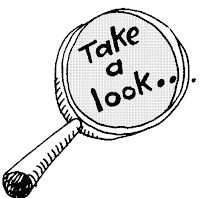 Helping Young Children Get Ready for School (it's bigger than literacy)
Helping Young Children Get Ready for School (it's bigger than literacy)
If you are one of those grandparents (or parents) that is confused by a lot of the "educationese" used by educators today, all the unfamiliar language can be intimidating. One of the issues, as we gain more information about the research behind children learning to read, is that the "internal language" educators use can inadvertently turn "lay people"off (grandparents, parents, community helpers, etc.).
To help you understand some of these terms, check out Where The Radio Show Left Off.
Also, if you are confused by information about DIBELS, a major assessment used in K-3rd grade, you can find a family-friendly pamphlet from my alma
 Kathy Stemke, the Educationtipster on Blogspot, recently called for an interview which you'll find posted on her blog. I always appreciate any opportunity to reach out and communicate to parents with children of all ages and certainly do this one.
Kathy Stemke, the Educationtipster on Blogspot, recently called for an interview which you'll find posted on her blog. I always appreciate any opportunity to reach out and communicate to parents with children of all ages and certainly do this one.
One of the comments on the blog asked questions that would require too long an answer on the comment segment of Kathy's blog so I'm jumping over here to give it a go. Her questions were:
What are your views on the various techniques for teaching reading?
How have they changed over the years?
What's most effective with children who have reading difficulties?
I certainly won't offer an entirely comprehensive answer here but enough to get you started and heighten understanding.
'TEACHING READINGOne of the wisest people in reading research today (Dr. Richard Allington) tells us that "there are many roads to reading". One size does not fit all. Different individuals come to reading through different mechanics. And reading is a multi-level complex set of skills rather than just one so it takes years to reach true competency. Part of the importance of partnerships between school and home is decyphering those needs and addressing them as needed with each individual youngster.
Children need to understand the alphabetic principal early on (knowledge of letters and shapes, their understanding that print has unique meaning and that letters represent sounds in our spoken language). As they gain the connection between letters and sounds, they now have the beginning tool to figure out the squiggles on the page. There is an excellent explanation of this part of reading on Reading Rockets in their
First Year Teacher segment and it's devoid enough of education lingo to be of value to non-educator parents.
It Starts Long Before . . . The truth is that the strongest readers are created from day one in a cocoon of language and experience with print. As I've often said, that doesn't mean creating a structured academic hothouse at home. It doesn't mean buying workbooks and sitting your 4-7 year old down at the table to work. It means experiencing literacy in all its forms in our world. If we could just get that right at the beginning, are consistent (just as we are in giving our children good nutrition or adequate exercise), and combine it with strong phonics instruction, we would virtually eliminate reading difficulties by first or second grade.
So my message to parents is always, "be the commercial for reading". Show children how interesting, how much fun reading is and, as Bob Keeshan AKA Captain Kangaroo says (I'm showing my age), "They will follow as the night follows the day." Read in front of them (not just novels, cereal boxes, street signs, bill board
I was not happy when I read the news article in my local paper entitled :"State's Girls Beating Boys". This is an issue not only in Alabama but according to the center on Education Policy, one in all public schools in all states.
The first paragraph caught my eye immediately. The reporter made the blanket statement that
“girls . . . are smarter than boys are”.
That is simply inaccurate and irresponsible. Yes, boys may be performing poorly on formal reading assessments, and, yes, reading is the foundation of all learning. However, just because boys don’t do well on state reading assessments shouldn’t delegate them to the “I’m not smart” category.
A comment from Dr. Susan B. Neuman was included and I believe she is spot on:
"Girls tend to read what teachers give them to read. They read a lot of stories early on. They're intrigued with the process of learning to read. With boys you have to motivate them to read with subjects they're interested in. Boys also have more energy which can create classroom management problems for teachers."
Although I agree as far as that goes,
I have a slightly different view. We must give boys genuine connections between practicing reading skills that we test and are required to teach AND finding meaningful experiences with print of all sorts.
Those reasons may be quite different than those that motivate and satisfy girls.
If our teaching was driven by what students need instead of a static curriculum that may not meet their needs, we will see more success.
Years ago educators started talking about “differentiating reading instruction” to meet needs of different types of learners. Reading Rockets has
a simple definition of that "education term". Every teacher
and parent can make a difference with students by being on that channel, regardless of the child's gender. With boys, it helps to address how boys can best be motivated to read. If acting out the story with a physical activity helps, especially with those younger children, why not incorporate that? The core, whether we are talking about boys or girls, is going beyond the skill-based focus on instruction which have overtaken classrooms (
a necessity but not the only important focus).
A truly balanced approach to reading instruction includes addressing not only skills or “mechanics” but also the practice, the habit, the “behavior” of reading. These days, with so much focus on limiting rea
On this week's Share A Story Shape A Future blogging event sponsored by The Reading Tub, they pose the question:
Who is the person who influenced you most as a reader?
Here she is with her first grandson (someone she also influenced as a reader):
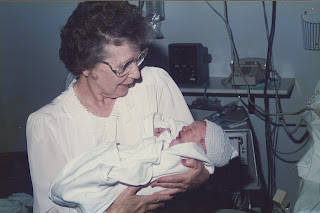
My mom
She's gone now from this earth but she sits on my shoulder every day. I see her putting a bowl on her head and prancing around the kitchen, reciting Robert Louis Stevenson's poem, The Land of Counterpane. I expect it was a meaningful poem since my brother and I both had times of extended illness in which we were confined to bed. It made us giggle and we loved the rhythm and rhyme of the poetry.
I see her pouring over a book, occasionally with those silly black framed glasses from the 1950's on her nose - do you know the ones with the wings? Her two most favorite authors were Phyllis Whitney and Eugenia Price (Momma loved historical fiction). As soon as I was in 5th or 6th grade and was a strong enough reader to attack these novels, she began sharing them with me and we'd have play fights over who would get the newest title first.
Although I cannot remember the first time I heard this phrase, I can still see that dreamy look in her eyes when she would tell me "you can go anywhere in a book" I believed her and I still do.
All her children believed her and their children (Nana's grandchildren) do too. What an incredible legacy this little feisty woman from the coal-mining country of Virginia has passed along, simply because she loved reading and books.
Today, she remains an influence not only in my personal reading (I have a good book or three or four on my bedside stand all the time) but also in my work as The Literacy Ambassador. Her passion for reading and stories and talking and sharing inspire me to this day. They are the reason I am an enthusiastic and passionate speaker, writer and advocate for the fact that "there is a book for every child". I know that without the indelible impression she left, I would not be doing what I am today. She, in fact, is the core of the revolution I am starting with my two new books, Anytime Reading Readiness and Before They Read. To learn more about that revolution, visit Reading is For Everyone
You can also stay in touch on Twitter and Facebook where you'll find me as litambassador and on Linkedin
Personal connections aid in understanding a story, whether your child is the reader or the writer (a composer like these two fellows in the picture to the right). I encourage families to find great books that connect to your child's a passion so they will show more interest in reading. I know you've heard that from me before but it is worth repeating.
When a reader makes personal connections to text, he then becomes part of the story, adding his or her own memories, ideas, experiences to that of the author. He moves from reading on the surface into deeper connection and the understanding (what teachers call "comprehension") goes through the roof.
So How Do You Get Your Kids to Respond That Way To Reading?
Good authors like Willie Morris (author of My Dog Skip) give us a large hook to connect with. Nearly everyone has experienced a pet and/or the loss of that friend sometime in our lives like he tells about in his book. If your young person is more into baseball, skateboarding or jazz, try Under the Baseball Moon by John H. Ritter. Have a youngster who likes history? A Wish After Midnight is a combo historical fiction and time travel adventure that will hold them til the very end. Relationships and self-image important? Try Nothing But The Truth by Avi. If you want to share an adult book with your teen, feel free. The Boy Who Harnessed the Wind by William Kamkwamba is an incredible real life story of inspiration. Sharing books you are enjoying (as long as you are comfortable with the content) is a terrific way to connect. The key is that
if we are going to expect our young people to be readers in the midst of all the possible distractions in this modern world, then we must give them an authentic, meaningful-to-them reason to do so.
A Snapshot of an Author
Many of you have read in my posts about the Reading Tub. I'm honored to be in their author spotlight this month so encourage you to visit their blog as well as the author showcase page itself.
In addition to the interview with me for this month, you'll also find book lists and reviews, articles of interest to educators and teachers, archives of past authors (can you find your favorites and a few new ones?) and even learn how to be in the showcase yourself if you are a author of children's books.
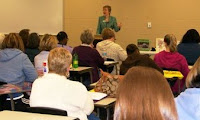 Need a presenter, trainer, speaker?
Need a presenter, trainer, speaker?
Some of you may know that I travel around the country to speak to parent groups and conferences as well as conduct educator training and you won't find a stronger advocate for children and books than me. Feel free to visit TLA's website to find topics thatmeet your needs.
Next post will be for our parents promoting reading with older students . . . stay tuned!
A GLIMPSE INTO THIS WEEK'S WORLD OF THE LITERACY AMBASSADOR Tomorrow I'm attending a wonderful north AL institution: the NW Alabama Childcare Conference. I always get excited because I get to see all my friends in the early childhood world (teachers and directors) from across the northern part of our state. And this year, we have a keynote speaker I know will be incredible:
Steven Layne. I wish those of you who are parents could be here to hear him.
I met Steven at a conference several years ago and so applauded his message: we need to spread a PASSION for reading! Check out his books,
Love the Baby and My Brother Dan's Delicious, now available on audio too!. What I like most about Steven is that he isn't your typical stuffy researcher from the university environment. He indeed has a passion that is contagious and we need that kind of epidemic. Don't be afraid to catch this bug!
RESOURCES FOR BUSY FAMILIES (and teachers)I also want to share with you parents of 3-6 year olds
a new video from TLA, Inc. that teaches you how to play a game, Rhymin' Simon, with your young children. It's drawn from my new book,
Anytime Reading Readiness, and its partner for educators, Before They Read, and is a quick easy way to build early skills while having a great deal of fun.
Rhyming is the doorway into the world of thinking about words for the sounds within them (apart from their meaning). The ability to recognize and even generate (eventually) rhymes comes as early as age 2.5 or 3 but it starts with simply playing with the language. As you talk daily with your child, you have given him many great tools in the language he uses; this activity and others like it are the way to effectively build on those experiences as he/she moves on the road toward getting ready to read.
My last gifts to you: 1) a
list of books to support rhyming and other early childhood literacy skills. Enjoy!
2) a chance to win a copy of Anytime Reading Readiness! Just cut and paste this
email address with the words ANYTIME CONTEST in the subject line and you'll automatically be entered. Contest runs through the end of February.
Over the last few days and week, I found a few resources sure to help you in your busy days with children of all ages (and in your own life). This seems a hodge-podge to me' just consider it a smorgasbord!
All these topics connect to parents (or any other adult) and kids and learning and reach across the spectrum of beginning and pre-readers into the world of older more independent readers (my two alternating focuses in this blog).
You know, reading with your children is really bigger than the book. It's about developing a relationship and learning to share and listen, it's about playing and all the terrific tidbits you learn when you take those few minutes out of your busy day to connect with your child, it's about identifying everyday learning experiences and encouraging that nature "investigator" in our children to shine. In the real world, it's difficult to separate out literacy from any other type of learning; it often happens at the same time, overlapping and intersecting.
1) Work of Childhood. This blog is for home schooling families but it's actually a great resource for anyone who has children (I always said when people asked me if we homeschooled our son, "Yes, but he goes to public school too - after all, there should be no lines where learning happens).
2) Although I'm not into pushing products, I have found two new friends who often search out the very best for young families and share them. Here are links if you'd like to check them out to
My Wee View and
Mom Audience. If you are a mom who is in business for yourself, Mom Audience also gives you a chance to list your great idea and business for free!
Now back to the business of literacy. Every month this year, my friend, Anastasia Suen, is hosting a
Carnival of Children's Literature! I made a note on my electronic calendar to "buzz" me as a reminder to visit each month for terrific information about reading and children of all ages. This month it is hosted by
Jenny's Wonderland of Books and next month it will be S
ally Apopkadek, a blogger on publishing and published children's literature.
Do you know that my friends at the The Reading Tub have a
blog? Terry and her friends always put together terrific resources for families AND educators so share this one! In fact, they've also listed the Carnival in their February 17th post!
Look for The Literacy Ambassador to be featured in their Author Showcase soon; we'll give you a heads up when that's available. In the meantime, you can find a few young adult books that are in need of reviews, listed to the right of the February 17th blog!
Today I was so excited to talk with my friend and colleague, Stacey Kannenberg on her radio show "The Ready to Learn Mom". As you can see from the title of this blog, our topic was again for parents of younger readers. Although the focus will be on preschool - 1st grade, many of the ideas discussed can be used with children throughout elementary school.
As usual, we had a great time sharing ideas with parents and others loving and interacting with children. If you didn't hear the show live, you can listen to the podcast (we'll make a link live here as soon as possible). If you were able to join us, there are many resources listed here that we referred to in the show.
Playing with sounds and patterns of sound in our language is especially important for children as they are learning how to spell and how to decode words. Besides, it's fun. Think about silly rhymes and rhyming songs you love (I was listening to country music this morning before the show and heard lots of rhymes). Don't forget tongue-twisters. When writing my new book Anytime Reading Readiness, I collected a tongue-twister for every letter of the alphabet and listed them. Here's the one for X:
The excited experts explained that the extra X-rays were excellent (remember that we're playing with sound, not letters so the fact that many of these words start with -ex but are the "cksssss" sound you get when you say the letter "x" is OK).
Dr. Seuss always played with silly animals and names in his books so anytime you pick up one of his titles (like Cat in the Hat or Hop on Pop) you are playing with those sounds integral to our language.
Here's a list of five other books with terrific rhymes and beginning sound emphasis. Stop from time to time as you read and point out the sounds that are same and different within the words you are reading. Talking about words gives your child a new level of awareness.
A Sock is a Pocket for Your Toes by Liz Scanlon
Jazz Baby by Liz Wheeler
Baby Bear, Baby Bear What Do You See? by Bill Martin, Jr.
Bear Hugs: Romatically Ridiculous Animal Rhymes by Karma Wilson
My First Action Rhymes by Lynne Cravath (complete with actions - you and your child don't have to sit still when you read!)
The Library Lady shares practical ways to play as well on her website in an article about how young children learn. Scholastic points out that playing with poetry is another good way to pay attention to those patterns.
Check out Anytime Reading Readiness (for parents of 3-6 year olds) and Before They Read (for teachers) for even more ideas!
Dropping in quickly to with a few tidbits for those with older, independent readers (ages 6-18). The new Kindles, MP3 players and other devises make having books more affordable (under $10 most of the time) and portable. Not able to afford a book reader? Try audio downloads available as well. Take advantage of the fact that your young person loves technology and consider one for them sometime this year.
The local Huntsville/Madison County Public Library in my home of Huntsville, AL is loaning downloads of ebooks (a great idea). Visit their site to see how they do it and share the idea with your local library too.
Remember when helping choose titles (really let the kids do the choosing) to gravitate to high interest and light topics for the everyday "recreational" reading you want to encourage. Starting in middle school, kids get a lot of reading assignments at school but you want them to stay connected to the fun, the wonder, the draw of books that are "off that official list" and are chosen specifically by the end reader. In fact, a friend of mine, Jim Cope of Kennesaw State University did a study several years ago in Georgia that revealed that choice was the major factor in whether older students continued to read past the "snuggle and cuddle stage" of reading with their families.
Here are just a few titles to consider:
Young Adult: Fang by James Patterson
Athletic Shorts by Chris Crutcher
Ana's Story: A Journey of Hope by Jenna Bush
Tweens: Long Shadows by Erin Hunter
So B. It by Sarah Weeks
Smiles to Go by Jerry Spinelli
Don't forget the importance of talking with your child about what they are reading - no drills, just good conversation.
By:
Cathy Puett Miller,
on 12/3/2009
Blog:
Parents and Kids Reading Together
(
Login to Add to MyJacketFlap)
JacketFlap tags:
parentsrule,
emergent literacy,
oral language,
beginning to read,
literacy,
families,
preschool,
reading with children,
conversations,
parenting,
parents,
young children,
Add a tag
Today I visited with Pat Montgomery of
ParentsRule radio and we talked specifically about helping young children come to the reading table "at their prime time". This post will serve as an additional resource to that interview (which you can hear via
podcast anytime this week if you missed the live show). Pat also has a
blog with more information from her shows so you can find even more important information there.
Did you know . . .
Children begin to read normally between the ages of 4-6 (a few exceptions on either end of that spectrum) and it is important to know that each child comes to the reading table at a different time (and reading later than 4 doesn't mean your child is "behind").
Did you know that the vocabulary level of children by 1st grade can predict at least 30% of their success in comprehending what they read when they are 16 or 17? The details are included in a longitudinal research study summarized in the book
Beginning Literacy with Language.
THREE BIG IDEASConversations are important.
Exploring print and books together is important.
Playing with the Language is important.
All of these work when they are consistently applied. More details on all three of these concepts are covered in detail in my new book
Anytime Reading Readiness (for parents) which makes a great holiday gift for a young family (or a stocking stuffer for yourself!) Easy, fun activities that can be slipped into busy days, without too much "academic" pressure (which can be counterproductive) are what you will find in this family-friendly handbook. It's also designed so you can find just the areas you need more information and ideas on or, if you want an overview, you can read from front cover to back.
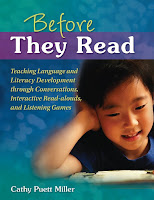
If you are looking for a great gift for the preschool or kindergarten teacher in your life, you can choose the companion book to Anytime Reading Readiness, called
Before They Read. Covering the same three big ideas mentioned above, this takes a more academic focus for easy application in the classroom while retaining the impor
By:
Cathy Puett Miller,
on 11/16/2009
Blog:
Parents and Kids Reading Together
(
Login to Add to MyJacketFlap)
JacketFlap tags:
parenting,
reading aloud,
stress,
families,
young children,
preschool,
chats,
conversations,
finding time to read,
cathy puett miller,
Add a tag
SWEET REFLECTIONSToday's blog is a time for reflection - take a deep breath, listen carefully and you can feel that same emotion, that same pride you first felt on that first day you met your new little one. Whether you are a parent (or a grandparent or other relative), I believe every one present at the first moments of life has this great rush of dreams and love for that baby. The start of a new life is inspiring to us all. But sometimes the whirlwind of life, the pressures and worries, can drive that feeling away or at least bury it a bit.
SNUGGLE AND CUDDLE TIMEReading with your child can help you recapture that understanding that every possibility is open; every life a new chance for the world to be a better place. I love the words from Nancy Tillman's
On The Night You Were Born, "So whenever you doubt just how special you are and you wonder who loves you, how much and how far, listen for geese honking high in the sky (they're singing a song to remember you by): . . . They take us back to those singular, life-affirming moments that are the core of our relationship with our child.
Whether you have a newborn, a toddler or a preschool child, think back to that time and those feelings and use them as motivational fuel. One of the truest, most satisfying ways we as parents (grandparents, aunts, uncles, friends, etc.) can keep those dreams alive is by creating a rich literacy environment for that young child.
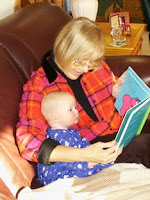 IT'S SIMPLE AND EFFECTIVE AND PAVES THE PATH TO READING
IT'S SIMPLE AND EFFECTIVE AND PAVES THE PATH TO READINGHave that feeling close to your heart? Here's the next step (no academic hothouse). Learning how our language works can be a natural, relationship-enriching experience for both child and family. Sitting down for just two or three minutes can rekindle that connection we had from the very beginning and remind us of what is most important in life. Look at the outside of a book together. See if you can guess together what it might be about. It's that simple to begin.
A CHAT WITH TUMBLON'S GRAHAM SCHARFI was personally reminded of just those connections when I spoke last week with Graham Scharf, father, educator, entrepenuer and co-founder of
Tumblon.com, a great place for parents to find resources for understanding and nurturing their child's growth, an inspirational place to connect with the joys of parenting.
Since the last few posts on the blog have related to the younger set (and their families), it's time to go back to our more independent readers. I just saw some terrific news from Publisher's Weekly:
While adult trade sales are expected to fall 4% this year, juvenile and young adult sales are expected to increase 5.1%, according to the PW/IPR Book Sales Index. Although it's impossible to completely break out juvenile from young adult (YA), it is possible to look at expected growth rates for different categories. In the fiction/fantasy/sci-fi segment, where most sales in the YA category fall, we expect nearly 13% growth in 2009, reaching $744 million. By 2013, sales in this segment are anticipated to hit $861 million, a 30.6% increase over 2008.
Wow! In part, we have the growing popularity of Kindles and Ipods for reading books. But families also play a particularly important role in whether children continue to read after the "snuggle and cuddle stage".
One of the big questions is: what do teens and tweens want to read? The Young Adult Library Association (part of the American Library Association) just this fall published a booklist made by teens. Paper Towns by John Green tops the list. It is the story of a bright, quiet kid and how he cares for a neighborhood girl. Kirkus Reviews calls it, "genuine and genuinely funny". Alicia Afterimage by Lulu Delacre is another great example of a book teens will want to read, this one dealing with grief.
What is most important for students once they leave the elementary school years is to have steady, open choices as to what they read. The difference between students who read beyond what is required in the classroom and those who just read to "get by" is staggering. One of the best ways to prepare your student for college (or life) is to encourage him to be a reader.
The reality is that parents can't control what your teen reads, so read a few books with controversial topics at the same time and discuss it with them. Parents will find a ready (and surprisingly open) approach to talking about decision making and careful choices if they start by listening with an open mind. And we all know how important communication and staying in touch with our growingly-independent man-child and woman-child is in these complex times.
Helping students carve out time to read what they are interested in and to grab it online or in print ideally starts with habits when they are young. However, as children move into reading mostly as an independent person rather than reading together with an adult, often families stop supporting their child's reading. They aren't sure what to do. That's where the decline often begins. It is important to remember that no reader is mature at third grade and that supporting them as a reader no longer means "having them practice for you". There are many more layers of understanding and depth to be developed and encouraged. Continuing to provide a variety of reading opportunities in the home, thinking "quick reads" for those busy teens (including magazines, internet articles, links sent via email, Facebook, IM, etc.) is essential.
I believe that one reason the types of stories mentioned earlier are so powerful for teens to read is because they connect to what they are experiencing, what they are learning about life at a time when they are learning so much. And that connection is critical, rather than a "you should read this" approach.
So
View Next 22 Posts


.jpeg)






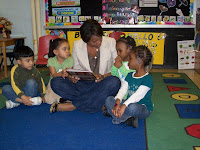

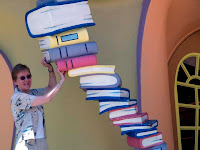








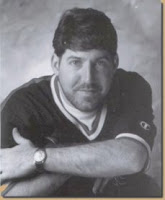
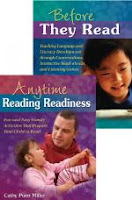

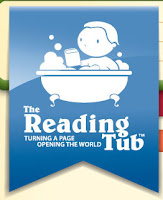

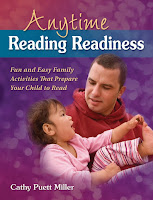


Thanks for pointing readers toward Wonderopolis, Cathy!
TIME Magazine just named Wonderopolis® one of its 50 Best Websites of 2011. Divided into 10 categories, the list includes Wonderopolis as one of five websites in the Family & Kids category.
TIME touted the daily Wonders of the Day® as fun learning for children and adults alike. “The daily articles at the National Center for Family Literacy’s Wonderopolis are allegedly educational and supposedly aimed at kids. Don’t let that fool you. They’re just plain interesting, and make for addictive reading even for those of us who are, in theory, all grown up,” the review states.
We are honored to be included on this list and thrilled to share that honor with sites owned by such respected organizations as Google, ESPN, Yale and HBO.
We hope your readers check out Wonderopolis.org, as well as our Facebook page and Twitter feeds. Thanks for helping to support parents and children in a lifelong love of learning!
Duane
Wonderopolis
You are welcome, Duane! I hope you'll come back and visit. Through my work at United Way of Madison County, I applied for one of your mini-grants for them - to aid an early childhood program starting up in october. Here's hoping!